Globally, over 2.7 billion women are legally prevented from performing the same jobs as men. For every dollar earned by a man, a woman, on average, only makes 77 cents. One in three women in the world has been a victim of physical and/or sexual violence at some point in their lives. It is clear from the data that for all the progress on gender equality over the last century, a whole lot more remains to be done.
Among those doing a whole lot more for women through institutional support, advocacy and empowerment is Anita Bhatia. Brought up in Kolkata, Anita worked with the World Bank before becoming the assistant secretary general and deputy executive director of UN Women in August 2019.
My Kolkata caught up with Anita to discuss her Kolkata days, what her role at the UN entails, how women can be empowered in conflict zones, and the hopes and concerns for women in India.
Edited excerpts from a Zoom call connecting Kolkata and New York follow.
I definitely consider myself to be a Kolkata girl
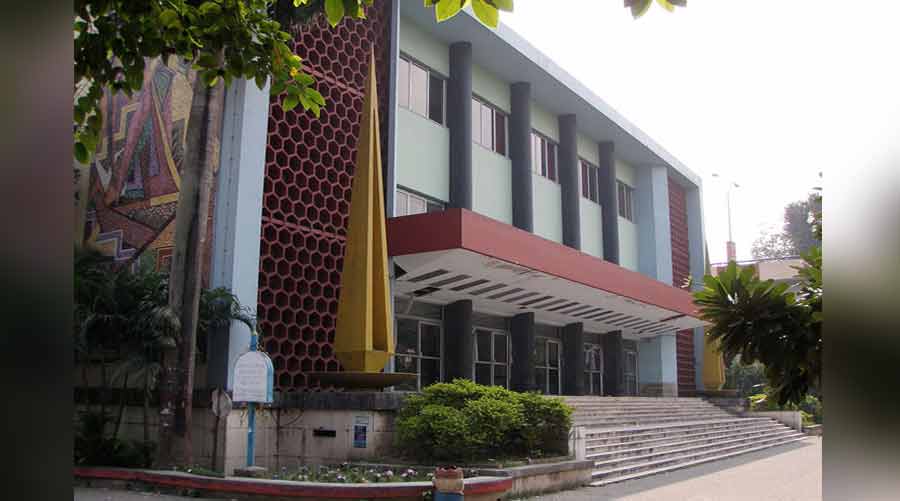
Watching a Kurosawa film at Rabindra Sadan is one of Anita’s fondest memories while growing up in Kolkata TT archives
My Kolkata: Let us start by talking about your Kolkata connect. Were you born and brought up in Kolkata? What are some of your fondest memories from your time in the city?
Anita Bhatia: I was born in Delhi, but I definitely consider myself to be a Kolkata girl because I spent a great part of my adolescence and youth in the city. I was in Kolkata until I finished college. There are so many things I love about the city, but there are two memories that stand out and epitomise the city for me.
The first one is of my mother saying to me when I was quite young that there was a film festival taking place at Rabindra Sadan and how we must go there to see the films of Akira Kurosawa. I’ve always admired the desire of Kolkata and its people to appreciate the best in the world in terms of art and culture.
The other memory that I have is of an old newspaper article talking about a sculpture exhibition in Kolkata and the massive line of people waiting to get in. The commentary in the article was about how nowhere else in the world could you find such a crowd of people queuing up just to see the beauty of sculpture. The intellectual atmosphere in Kolkata isn’t something one can find easily in other cities.
Old school friends from Modern High School, amazing women…
Do you still have a lot of family or friends in the city?
My stepmother still lives in Kolkata. I don’t have many other people in terms of family, but I have friends who are like family. We have wonderful neighbours and I also have old school friends from my time in Modern High School, amazing women who you can get on with as if you never left.
Phuchka and chaat on the street; chhole bhature at Kwality; a drink at The Oberoi Grand

The Oberoi Grand is a familiar haunt for Anita whenever she is in Kolkata Oberoi Hotels
How often do you get the chance to come back to Kolkata? What are your must-do/ must-eat/must-visit things when you return?
When my dad was alive (until May 2020), I used to come back to Kolkata at least three to four times a year. Whenever I’m back, I have to eat all the street food, especially phuchka and chaat. Coming back to Kolkata also means going to Oxford Bookstore on Park Street, having chhole bhature at Kwality and sipping a drink at The Oberoi Grand, because my dad used to love going there.
Studying at Loreto College was the most fun I’ve had in my life
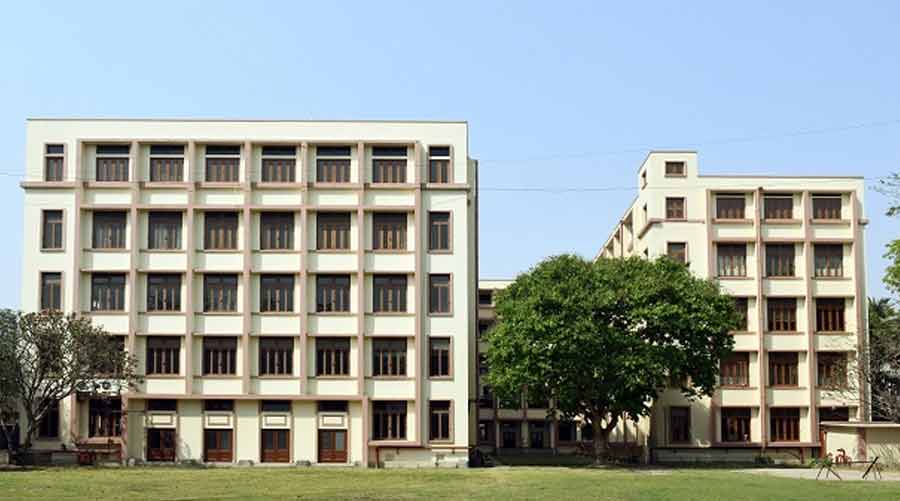
Anita completed her BA in history from Loreto College, Kolkata Loreto College
You did your BA in history here. What was that experience like?
I studied at Loreto College under Calcutta University, and it was the most fun I’ve had in my life. Yes, we studied when we had exams, but we had an absolute blast in college. I was also an active debater and I enjoyed going to different competitions and festivals, like the ones at IIT Kharagpur, where I loved winning laurels for the college and beating the guys!
Professor T.N. Srinivasan at Yale became a very important mentor
How much did your MA in political science from Yale University equip you for the career you have gone on to have?
Yale was a brilliant experience, partly because you’re just surrounded by incredible people. It was at Yale that I met Professor T.N. Srinivasan, who was teaching economics, not political science, but he became a very important mentor to me. He set me on the career path that I ended up taking. When I started off at Yale, I was doing security studies or what we called “bombs and rockets” in those days. But I shifted quite a bit during my time at Yale, because meeting T.N. Srinivasan made me very interested in studying development issues.
Ban Ki-moon set up UN Women to have a special focus on women’s empowerment
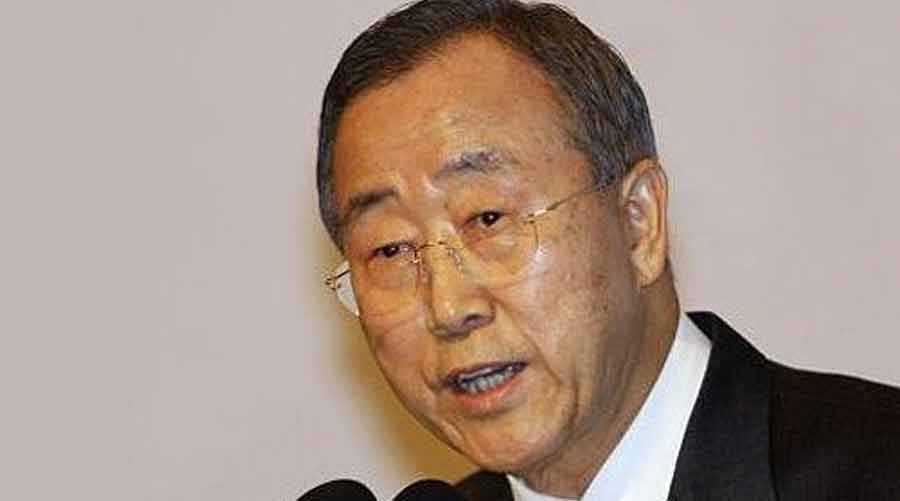
Ban Ki-moon set up UN Women in 2010 while he was the Secretary General of the United Nations TT archives
Coming to your professional life, could you summarise the kind of work UN Women does? What are the key areas, verticals or sectors that UN Women focuses on in terms of gender equality and women’s empowerment?
UN Women is one of the newest UN agencies and it was set up in 2010 by Ban Ki-moon when he was the UN Secretary General. He wanted a special focus on women’s empowerment. There are two broad functions that the organisation has. The first is to set global norms and standards in terms of what women’s empowerment and gender equality look like. This means creating an ecosystem where gender issues are considered when we’re talking about any major issue, be it climate change, trade or dealing with refugees or cyber crimes. The second is to operationalise all of this at the country level, in terms of changing laws and attitudes and creating projects that push for women’s empowerment.
You are the Assistant Secretary General and Deputy Executive Director of UN Women. How would you describe your role and responsibilities to our readers?
My role within UN Women is primarily to raise money. While we do get funds from the UN, not all of our funding comes from there. In fact, we’re mainly dependent on donors, both public and private. The second part of my job is deploying the money that’s raised in ways that ensure we remain a sustainable organisation in the long-term. Finally, it’s about partnerships. The agenda for UN Women is so big that there’s no way for us to do what we do alone. Building alliances that influence others to take on gender equality and work with us is also a vital part of my responsibilities.
Right now, we’re doing a gender assessment in Ukraine
Moving to geo-political crises, whenever there is something like what we are witnessing in Ukraine now, the disproportionate focus is on the lives of men and how many succumb on the frontlines. But what about the women in war-torn or conflict-ridden societies? How does UN Women come to the aid of women during such crises?
Whether it’s Syria, Yemen, Myanmar, Afghanistan or Ukraine, it’s the women who end up bearing the disproportionate burden of the conflict. Women are the ones responsible for care-giving, looking after the children, getting food on the table as well as ensuring that the family is somehow kept together in the face of terrible adversity.
We have a global programme called Women, Peace and Security where we start with the belief that any peace process that’s being negotiated needs women at the table. We insist that women are made a part of decision-making and are included in deciding the future of a post-conflict situation. Additionally, UN Women also provides services to organisations that are providing humanitarian relief.
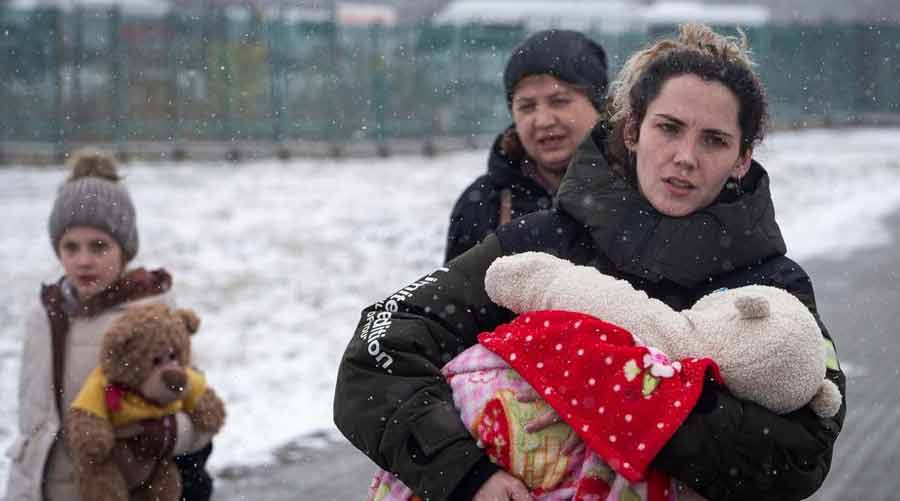
Anita believes that women have to be integrated when deciding the future of a post-conflict society TT archives
Let me give you an example of how our work makes a difference. I visited a refugee camp in northern Uganda, and Uganda has done a terrific job of taking in a huge number of Sudanese refugees. There were local councils in these refugee camps, but they didn’t have any women. UN Women changed this and made sure that women were represented. I asked one of these women that now that she’s on the council, what’s changed? She told me how she changed two things. One is that she told all the people bringing food that they need to bring the food in packets that women can carry, because the packets used to be so heavy that women couldn’t carry them on their heads. The second thing she did was have lights installed in the areas around the camps. Without any lights, women who worked at night would often get raped. But once the lights came in, the attackers were deterred. These are just two small examples of how having a woman on the council brought about a change.
In Ukraine, we have a very important role in advocacy because we’ve got to make people remember in the middle of the conflict that women are suffering, too. Right now, we’re doing a gender assessment in Ukraine; we’re talking to all civil society organisations to understand the special needs of Ukrainian women. We’re also raising awareness about how women can be prevented from becoming victims of trafficking during conflict besides generating data on how conflict affects women in other areas of their lives. The data we collect eventually provides a strong impetus to form policy.
We should not see the upswing in trans rights as a way to undercut women’s rights
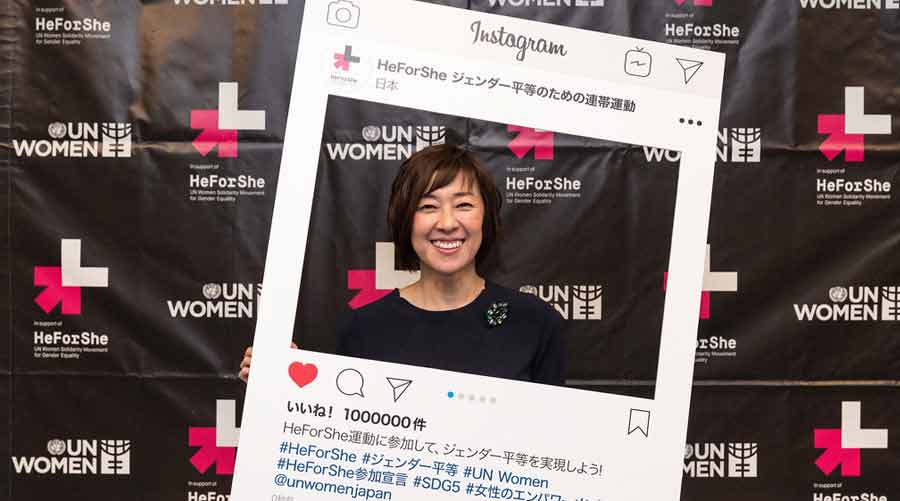
Transgender rights and women’s rights should not undercut each other, according to Anita UN Women/Masaki Kozakai
UN Women also does a lot of work for LGBTQI+ rights. In recent years, Trans-Exclusionary Radical Feminists or TERFs seem to believe that trans rights and women’s rights are divergent, and sometimes mutually exclusive, issues. What is your take on this debate?
This is a complicated area. A lot of people who’ve been long-standing advocates of women’s rights are coming under attack for saying that women’s rights come first. I think there’s space for everyone’s rights. We need to be thinking about how the women’s rights movement can support other rights movements and vice versa and not see the upswing in trans rights as a way to undercut women’s rights.
We need to have parental leave; businesses have to make special efforts to retain female talent
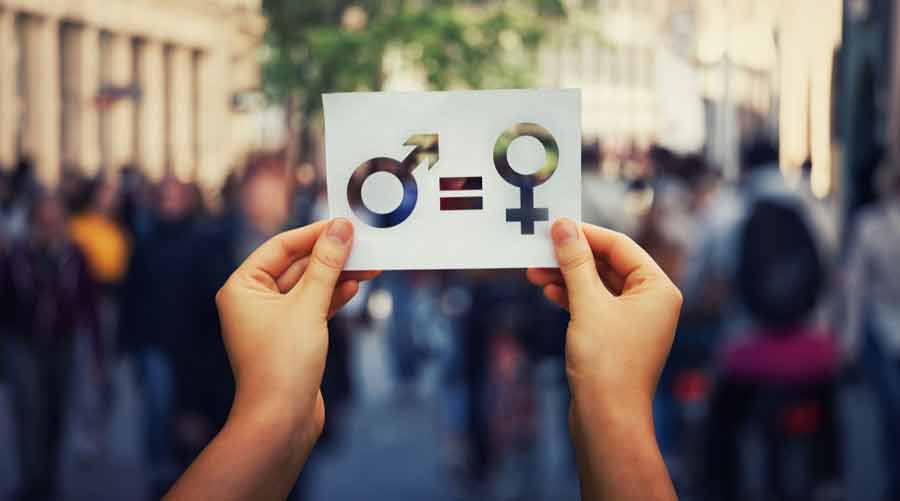
Anita points out that females bear a disproportionate share of the care burden, something that must be acknowledged by policymakers TT archives
One trend that is becoming clear in recent years with respect to employment and equal pay is the role of pregnancy and its impact on women’s career and income. How do we address this problem? Is a mandatory paternity leave a feasible solution?
First, policymakers need to realise that the care burden is real. They have to stop pretending that men do as much work as women, because men don’t. There need to be social safety nets and social protection systems that acknowledge this care burden. This means that we need to have parental leave, which isn’t just maternity leave but paternity leave, too. We need to set up clear expectations from men and women about their roles in the family and care-giving.
Second, the private sector also has a big role to play. Businesses are the largest employers in most parts of the world and they have to make special efforts to retain female talent. What generally happens is that you’ve got men and women who are equally qualified and are hired at the same time, and at the beginning, their careers are going pretty much the same. And then, suddenly, there’s a funnelling. Whereas you started with a 50:50 ratio of men and women, you find only 20 percent of women in management and leadership. Why’s that? Because a lot of women have dropped off to take care of children or elderly parents. Recognising this through flexible work options, saving jobs for women, re-integrating women and creating an infrastructure of support is fundamental for the private sector.
Violence against women in India has become a shadow pandemic in itself
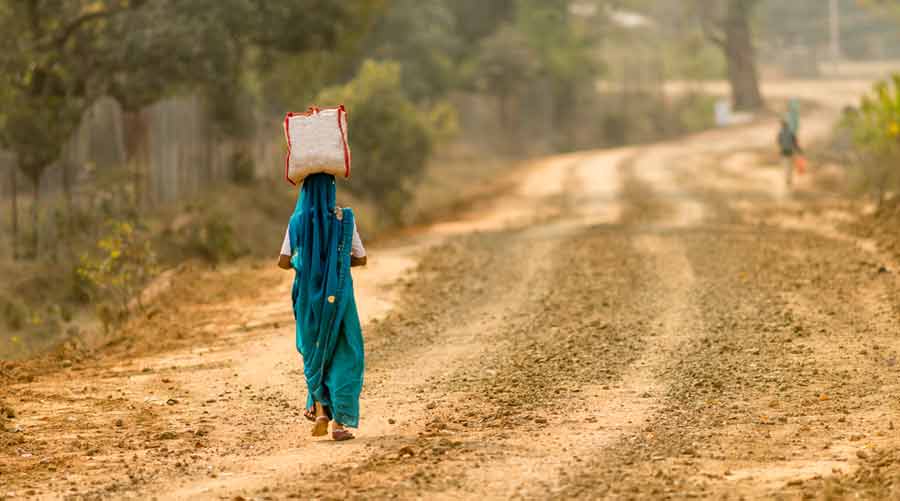
Attitudinal shifts are a must for women’s empowerment in India, argues Anita TT archives
What are your biggest reasons for hope as well as concern when it comes to women’s empowerment in India?
Let’s start with the reasons for concern. The biggest reason for concern is the lack of women’s education and how so many girls are out of school. Education is the fundamental building block of women’s empowerment.
Secondly, attitudes have to change. We still have too many people who have different expectations from men and women. While at one level it’s fine to have different expectations, those expectations can’t get in the way of women wanting to carve out their own paths.
I also continue to be concerned by the rates of violence against women in India. It’s become a shadow pandemic in itself and has to be declared a public health crisis, because no country can realise its full productivity or potential if its women are beaten and raped.
As for hope, I think what the Government of India has done in terms of women-led development and the focus on digital inclusivity, is important. Even creating sanitary napkins for one rupee matters a lot. There are so many more women nowadays in panchayats and local councils, which is vital. Seeing women in decision-making, be it in the private or the public sector, gives me hope.
Finally, what gives me hope is that India is a young country. The youth are going to push for the policies or changes that we need.
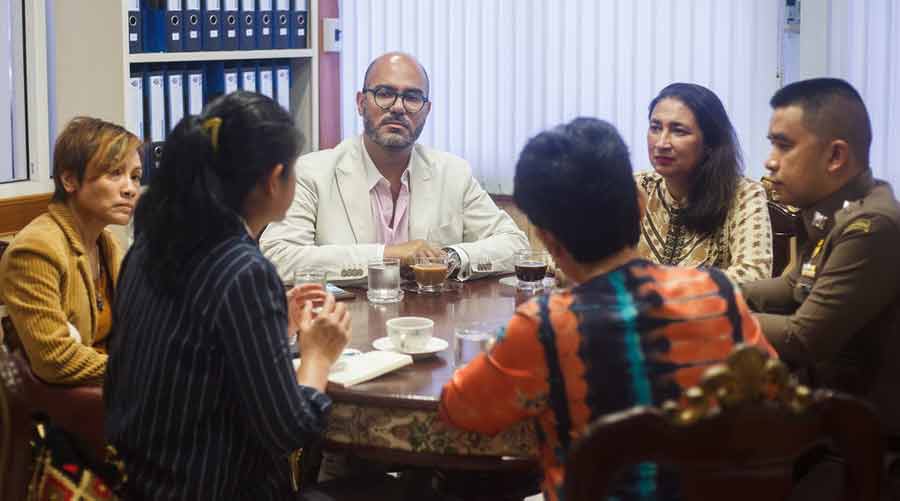
Anita’s time at the World Bank taught her the power of finance and its relationship with expertise UN Women/Bundit Chotsuwan
During your time at the World Bank, you worked extensively in the areas of strategic partnerships, resource mobilisation and management. What were some of the key lessons that have helped you in your role at UN Women?
You have the best and the brightest people at the World Bank, which means that they’re able to mobilise knowledge and expertise very effectively. In terms of lessons, my time at the World Bank taught me the power of finance and linking it with expertise. I’ve realised that when you don’t have money to implement policy advice, you become much more dependent on political will.
It’s really important to get practical work experience… to come up with solutions
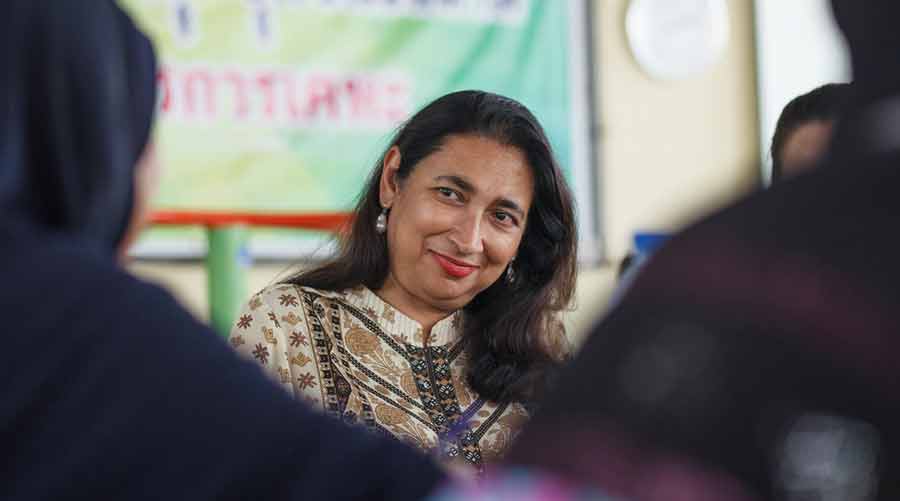
Practical experience must complement academic learning, feels Anita UN Women/Bundit Chotsuwan
To young women, reading this in Kolkata or any other Indian city, with dreams of working with UN Women, what would your advice be? What kind of an academic and career path should they try and follow?
There are many ways to have an impact on the world, be it inside or outside the UN. Careers shouldn’t be focused on institutions, but on what you really want to do. I’d just say that it’s really important to get practical work experience. Academic foundation is essential, of course, but people have to go to the field, engage with the clientele and come up with solutions.
If I had a second career, I might have become a gardener

Anita reveals that she is a gardener at heart TT archives
Shifting to your personal interests, what are your hobbies and passions?
Exercise is very important for me. I used to do a lot of yoga, but recently I’ve been doing much more of pilates, which I’m loving. I like to row and I love to garden. If I had a second career, I might have become a gardener.
Any recent book/film/TV show recommendations for our readers?
I’ve really enjoyed this Norwegian series called Occupied on Netflix. It seems quite prescient. I also watched this show called The Bureau, a French spy thriller, which I liked very much.
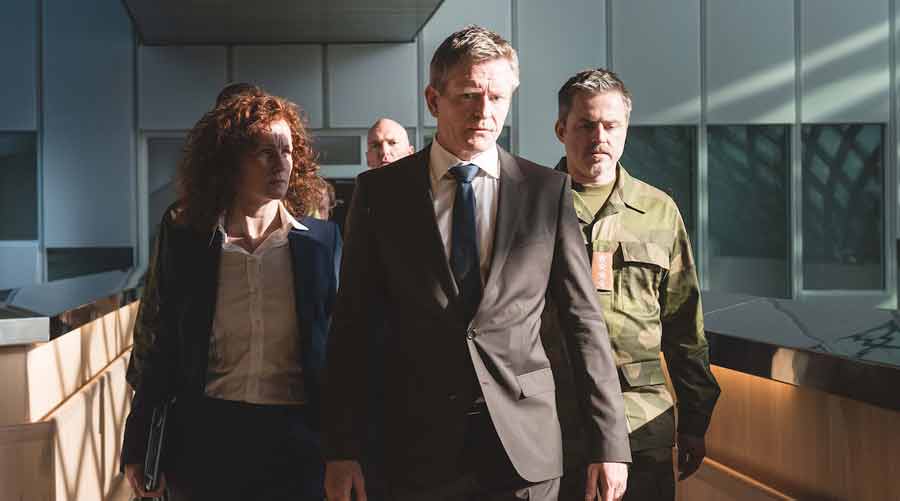
Occupied on Netflix is one of Anita’s favourite shows
I’d definitely like to spend more time in India
Finally, where do you see yourself in five years’ time?
When you get to my age, you realise there’s a limit to how much planning you can do! So, I’m not planning things for five years from now. But in the future, I’d definitely like to spend more time in India. I’ve started mentoring a few girls from the Kautilya School of Public Policy in Telangana and I just love talking to these young women and hearing about their hopes and dreams. I’ll be doing more work with the Kautilya School and I hope I’ll get to be in India more often in the time to come.
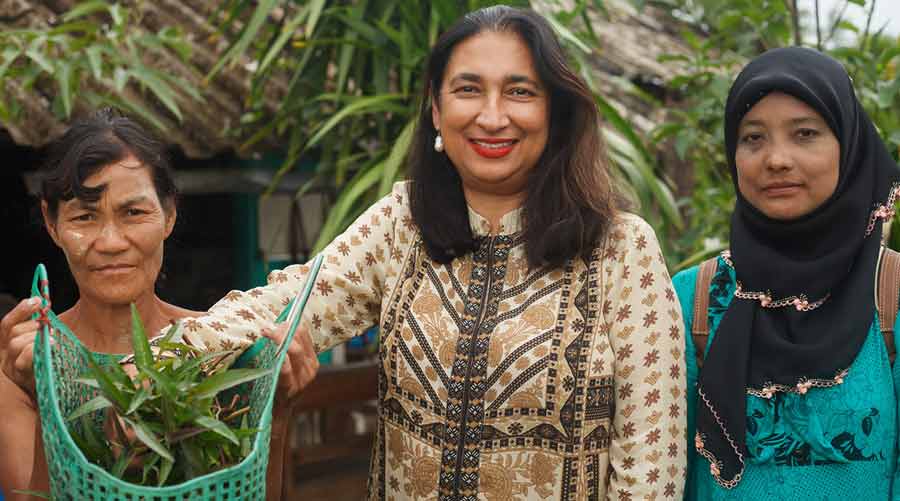
 partnership!
partnership!